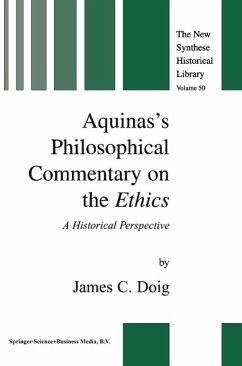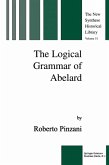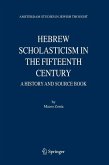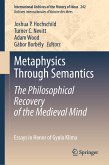Dieser Download kann aus rechtlichen Gründen nur mit Rechnungsadresse in A, B, BG, CY, CZ, D, DK, EW, E, FIN, F, GR, HR, H, IRL, I, LT, L, LR, M, NL, PL, P, R, S, SLO, SK ausgeliefert werden.
["The author offers a cogent thesis based on detailed argumentation and thorough historical research. In a manner that is difficult to disprove, he shows that the possibility of philosophical ethics on the part of Thomas is not only of historical importance for the interpretation of Thomas, but is also consistent with Thomas' system. Therefore, this study could prove useful in dealing with present-day problems."]
Tijdschrift voor Filosofie, 2003:2









